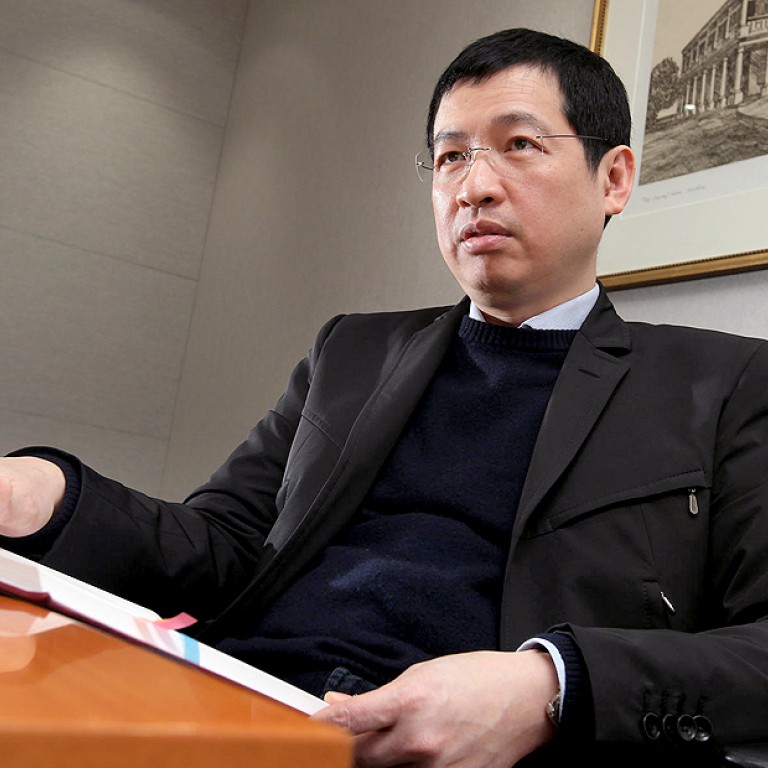
Hong Kong Basic Law Committee member urges middle path deal between different parties
Beijing is likely to accept a compromise between pan-democrats and government-friendly parties, says Basic Law Committee member
Moderate pan-democrats and core government-friendly parties should strike a middle path on universal suffrage with a focus on how to design the procedure for nominating chief executive candidates in the 2017 race, a Basic Law Committee member says.
Barrister Johnny Mok Shiu-luen says if the two sides forge a consensus on the nominating committee, it appears "likely" to him that Beijing will agree to it.
"In my view, if a consensus is to be reached, the biggest chance is ... a middle proposal between the moderate proponents and those so-called conservatives [who argue for 50 per cent member approval]," Mok said in an interview with the .
Mok is the first person from the prominent 12-member Basic Law Committee to address political reform since the public consultation ended on Saturday.
The Basic Law Committee advises the state legislature on matters relating to the city's mini-constitution.
Mok labelled the "first-past-the-post" mechanism as one "fruitful" focus for future discussion. Under the mechanism, once a cap has been set for the number of chief executive candidates, those who obtain the highest number of nominations can join the race.
"The Basic Law does not say that the committee's vote [required for a nomination] has to be a simple majority. This is where I think a compromise is most possible," he said.
Mok also said that public and party nomination, demanded by most pan-democrat parties, was "definitely unconstitutional". Mok argued that the nominating committee was designed by Basic Law drafters as a check against populism and to protect Hong Kong's capitalist system.
Among the proposals which are considered moderate, a group of 18 academics suggested non-binding "public recommendations". This would involve signatures of support from 2 per cent of registered voters, or approximately 70,000 people. Such a candidate would then need the backing of an eighth of nomination committee members to go forward for formal candidacy.
Major pro-government parties - the Democratic Alliance for the Betterment and Progress of Hong Kong and the Federation of Trade Unions - said only those with support from at least half the committee members should stand in the election.
Dr Brian Fong Chi-hang, one of the 18 academics and vice-chairman of think tank SynergyNet, said while their proposal could serve as a starting point for negotiations among politicians, there were certain bottom lines that could not be compromised.
"If the threshold is raised to one-sixth of all committee members, Hongkongers would fear this amounts to depriving people holding different political beliefs of the chance to join the election," Fong said.

